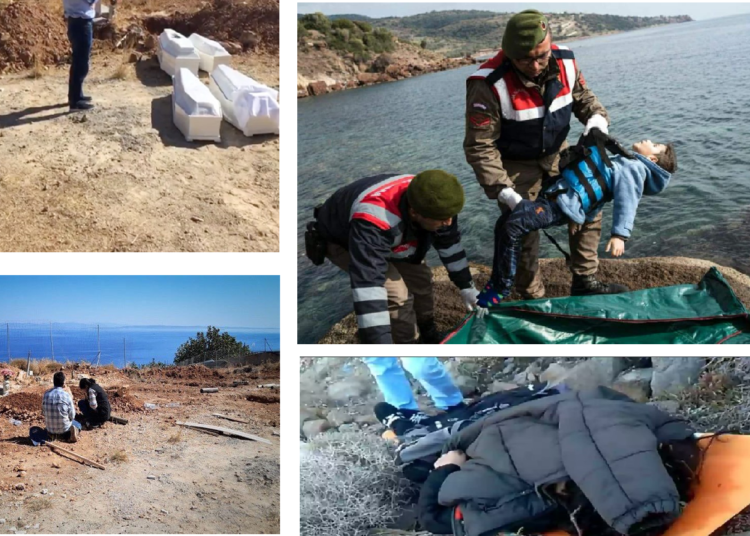Nordic Monitor
Asylum applications filed by Turkish citizens with European countries continue to rise due to the Turkish government’s crackdown on its critics, with such requests, which spiked following a coup attempt in Turkey in 2016, increasing about 9 percent in 2019.
According to Eurostat, Turks were the sixth largest group seeking refuge in Europe, totaling 25,885 in 2019. Germany is by far the preferred destination for Turkish asylum applicants, receiving 10,785 requests in 2019, far ahead of Greece, (3,795), France (3,725), United Kingdom (1,265), the Netherlands (1,250), Switzerland (1,225) and Belgium (1,000).
While Germany saw a 12 decrease in new asylum applications in 2019, the number of Turkish nationals seeking refuge in Germany increased by some 6 percent compared to 2018, Eurostat reported.
Turks seeking asylum in Germany have grown drastically since 2016. Between 2013 and 2015 only about 1,800 Turks sought asylum in Germany every year. That number rose to 5,742 in 2016, according to the German Federal Office for Migration and Refugees (BAMF). There were 8,483 applications in 2017 and 10,160 in 2018.
Eurostat is the statistical office of the EU and is based in Luxembourg. It publishes official statistics on the EU and the euro area, offering a comparable, reliable and objective portrayal of Europe’s society and economy.

According to Eurostat, 612,975 asylum seekers applied for international protection in EU member states in 2019, marking an increase of 63,700 applicants across the EU-27 in comparison with 2018 (548,955).
Eurostat also reported that Germany accounted for 23.3 percent of all asylum seekers with 142,510 applications, followed by France (119,915, 19.6 percent), Spain (115,190, 18.8 percent) and Greece (74,915, 12.2 percent).
Since 2013 Syrians have constituted the majority of asylum seekers in the EU. However, the number of Syrians fell to 74,400 in 2019, from 80,000 in 2018, while the share of Syrians in the EU-27 total dropped from 14.6 percent to 12.1 percent.
The main contribution to the increase in general (63,700) across the EU-27 was a higher number of applicants from Venezuela, Colombia and Afghanistan, Eurostat reported.

The body of a Turkish child, Feridun Maden, found in the Aegean in 2017.
According to statistics, the number of Turkish asylum seekers in Europe and Turkey’s neighboring countries increased noticeably following the coup attempt on July 15, 2016, after which the government started arresting tens of thousands of people including journalists, academics and human rights defenders on dubious terrorism charges. Many Turks have been forced to flee their homeland because of the ongoing witch-hunt due to their links to the faith-based Gülen movement, a group that is highly critical of the government of President Recep Tayyip Erdoğan for corruption and the aiding and abetting of armed jihadist groups. The Turkish government also accuses the movement of orchestrating the coup attempt, although the latter denies any involvement.
Unfortunately, some fleeing Turkey have lost their lives in the Aegean Sea or the Evros River. In September 2019 an inflatable boat carrying 16 people affiliated with the movement en route to the Greek island of Lesbos in the North Aegean capsized, with seven people including five children drowning and nine rescued. The group was trying to escape the persecution of Erdoğan’s government.












